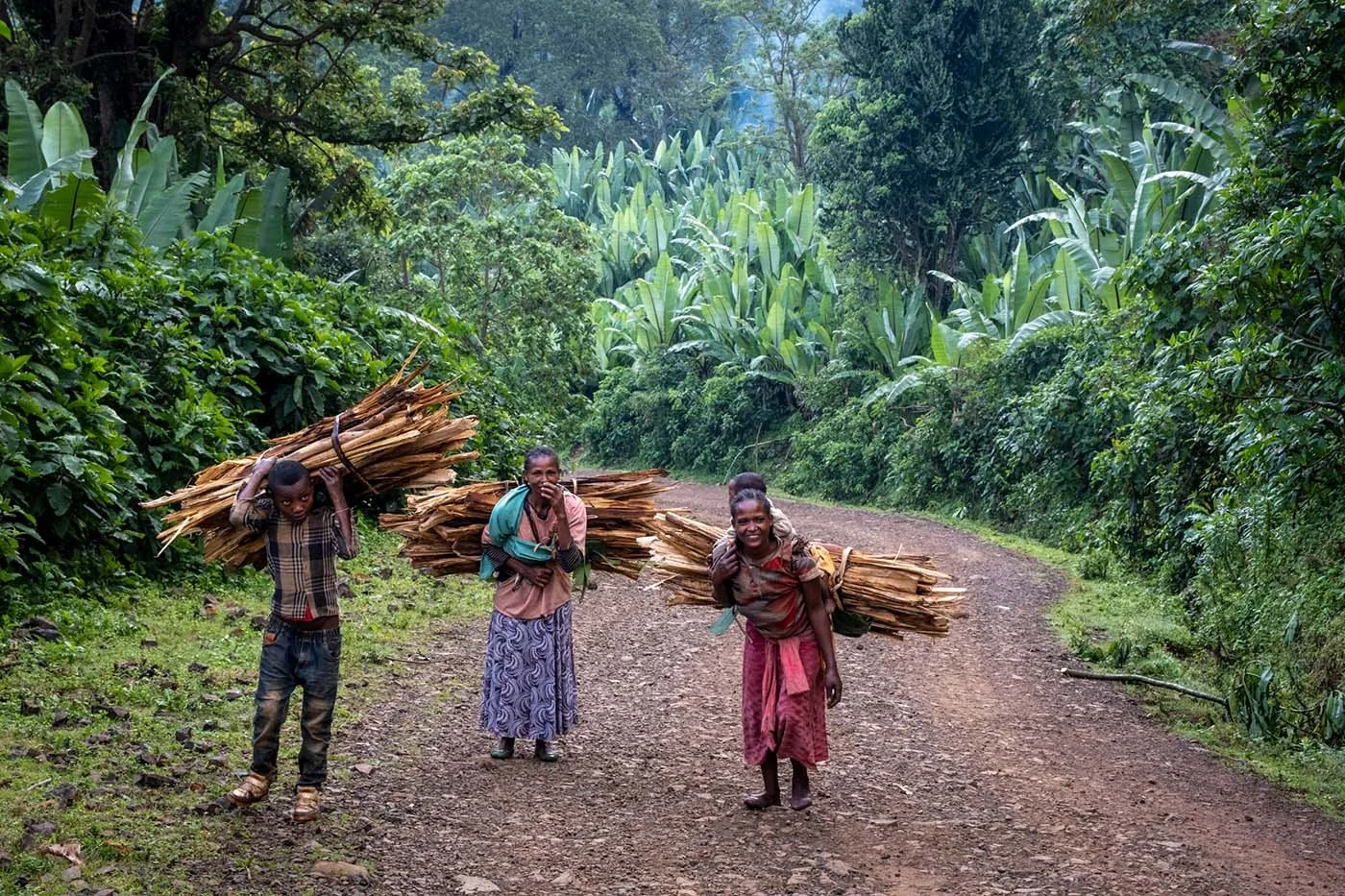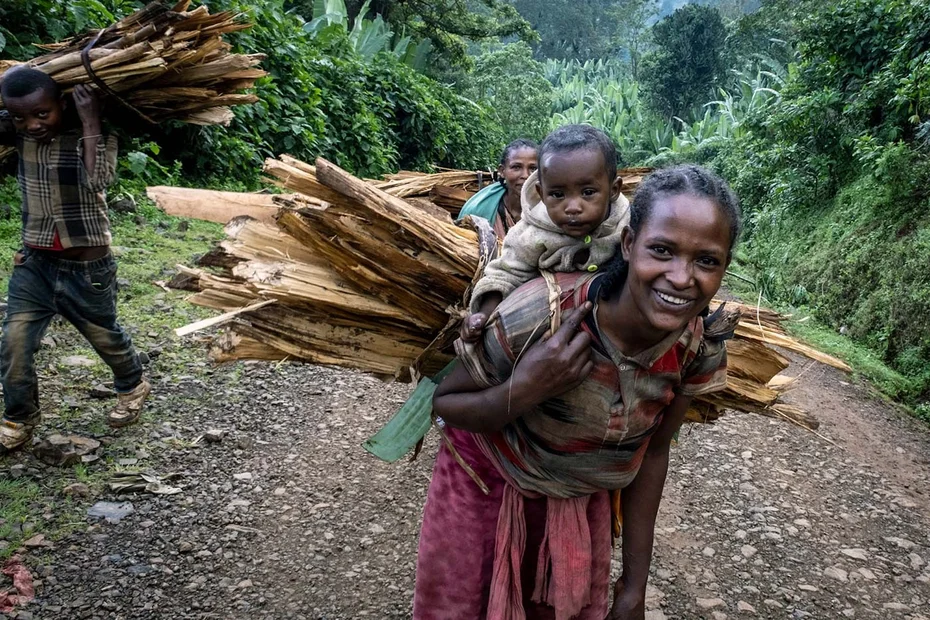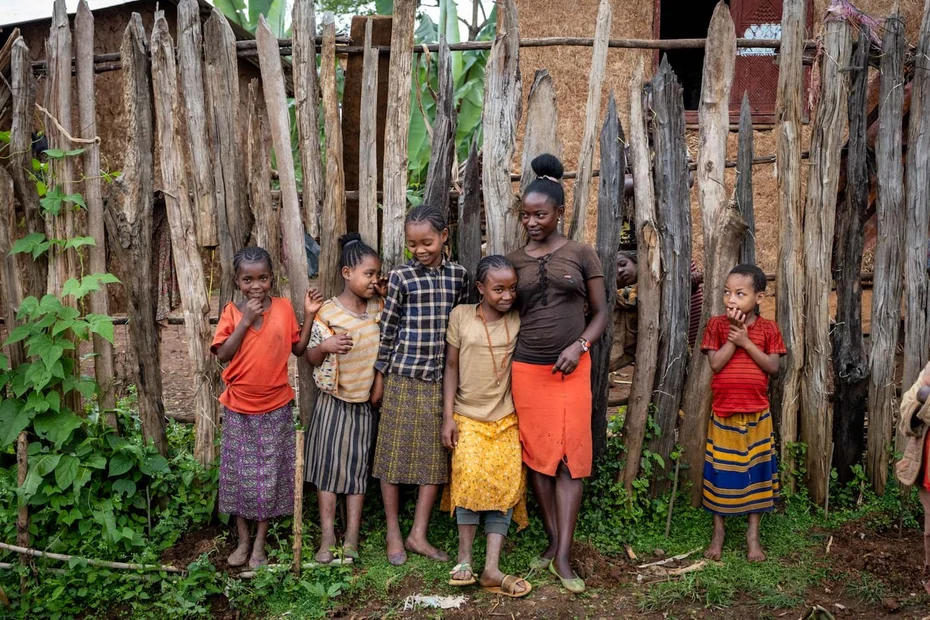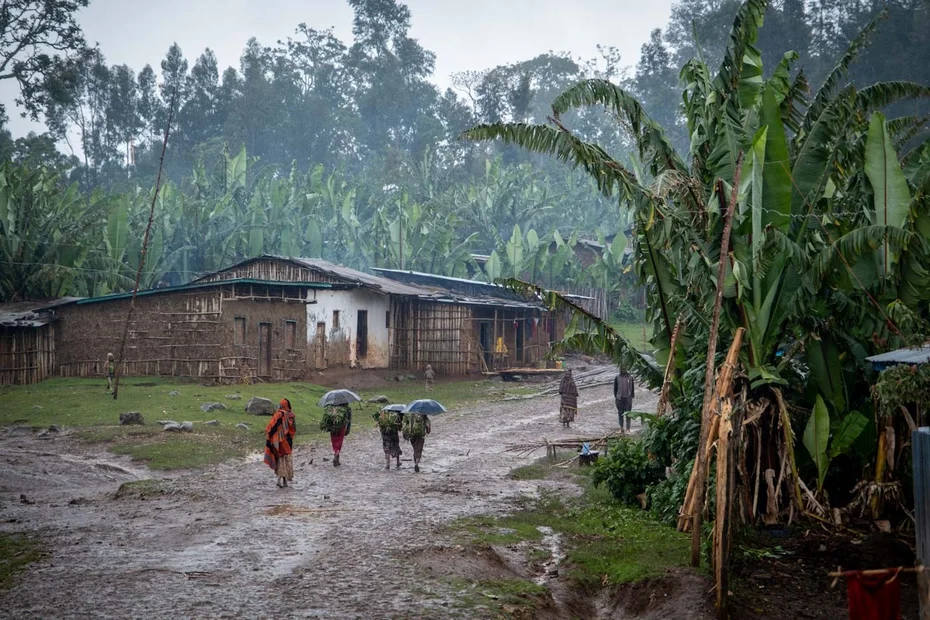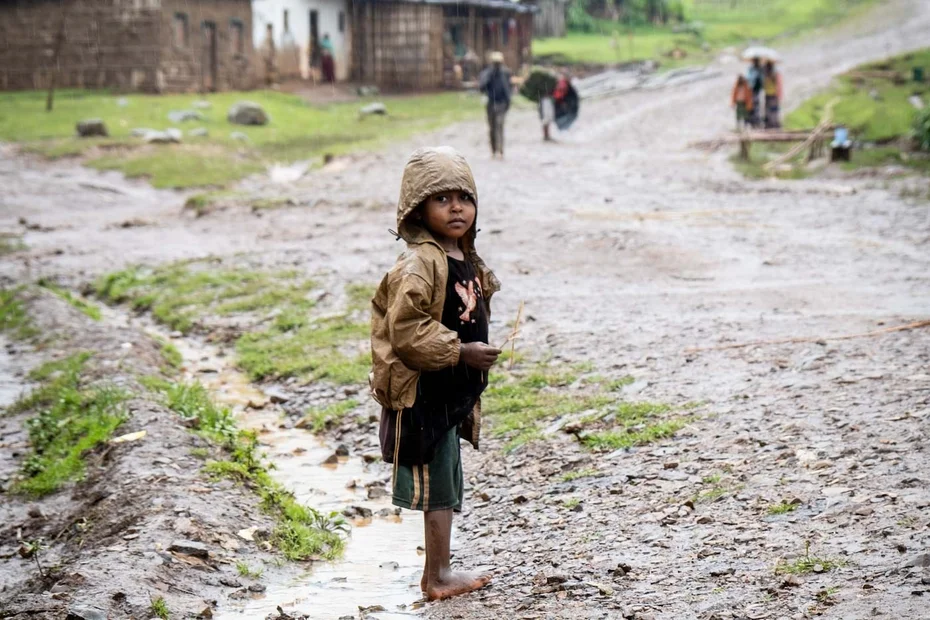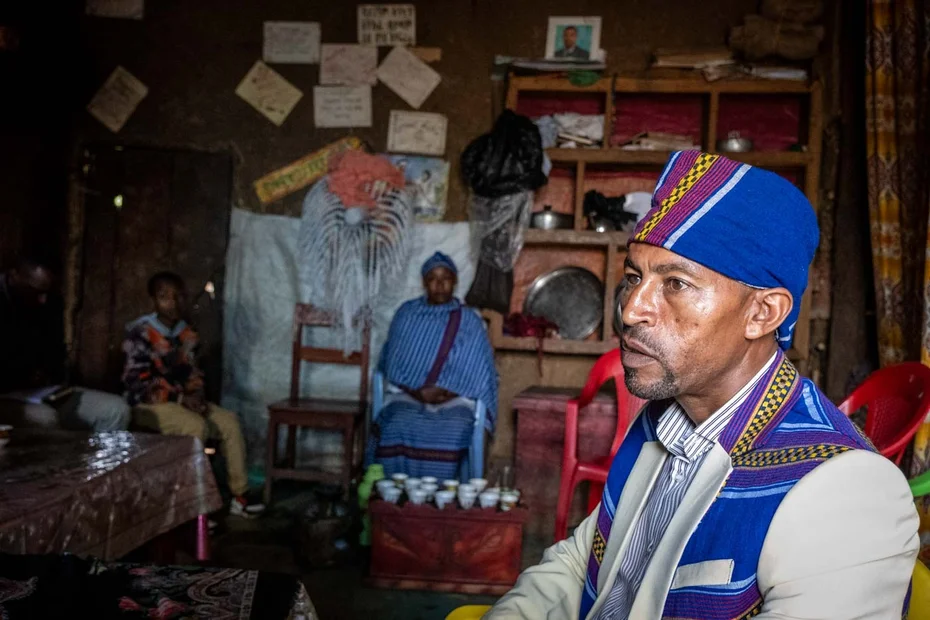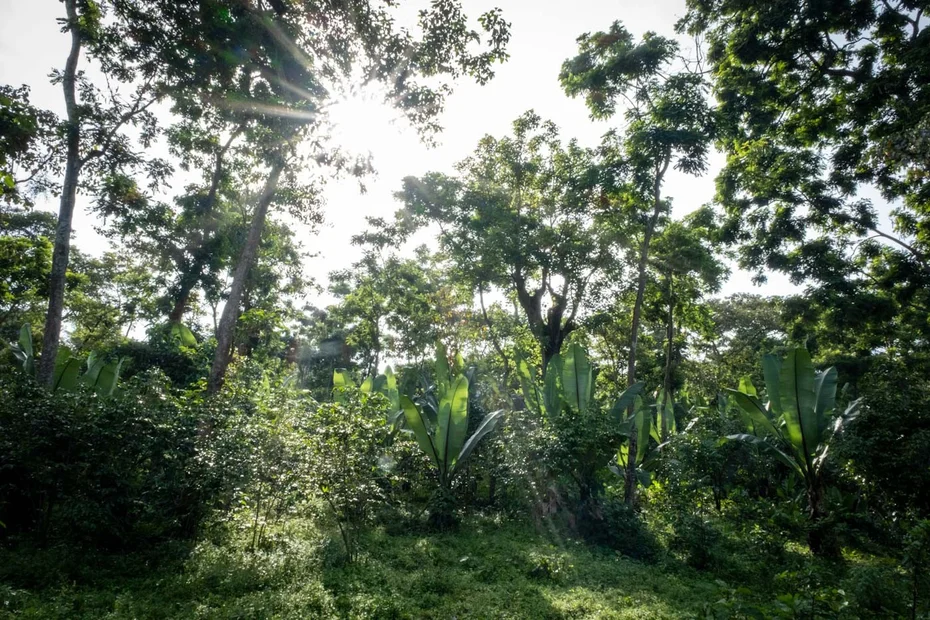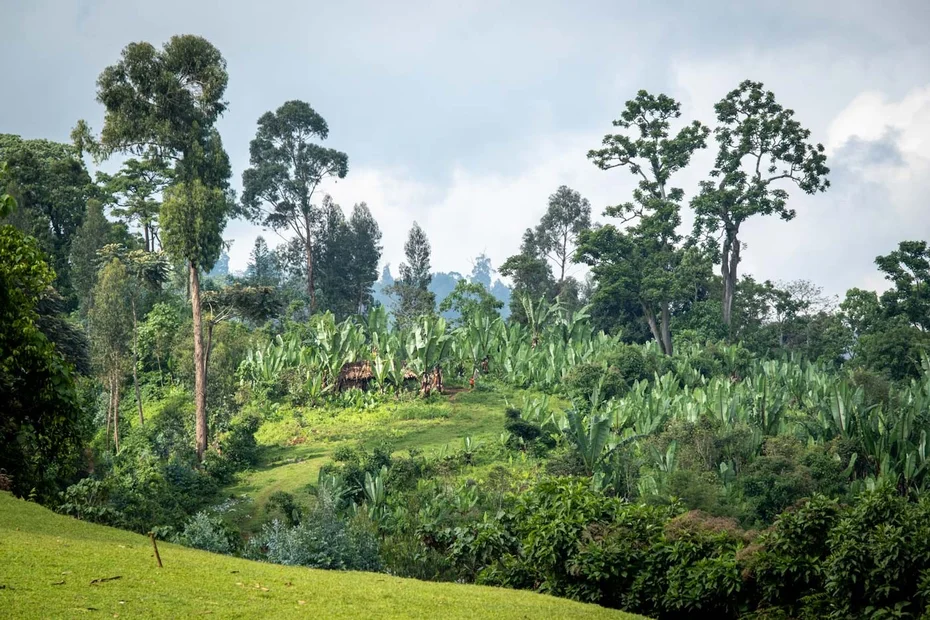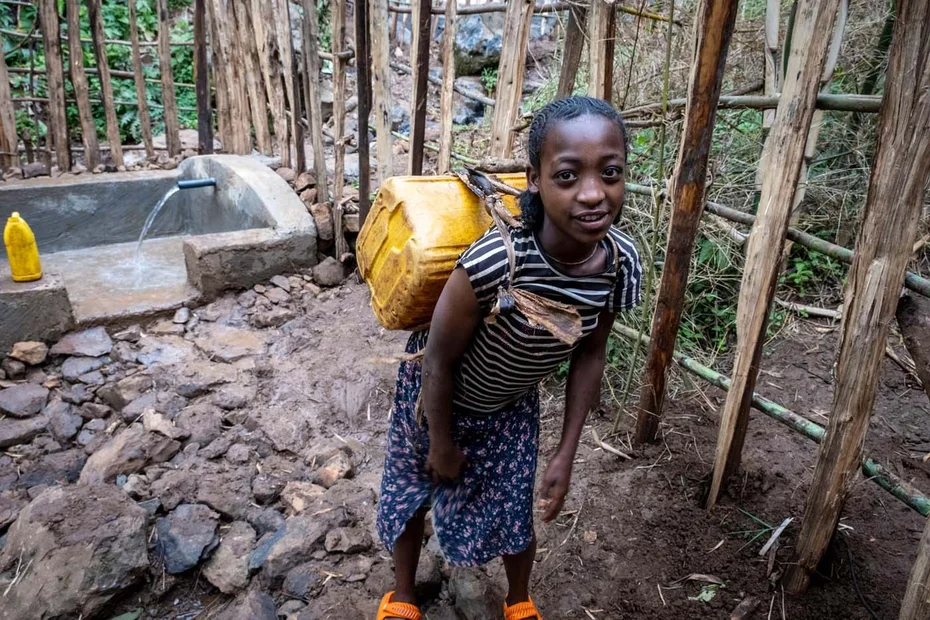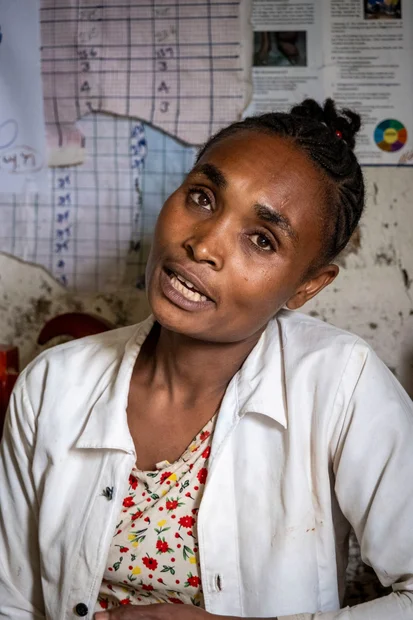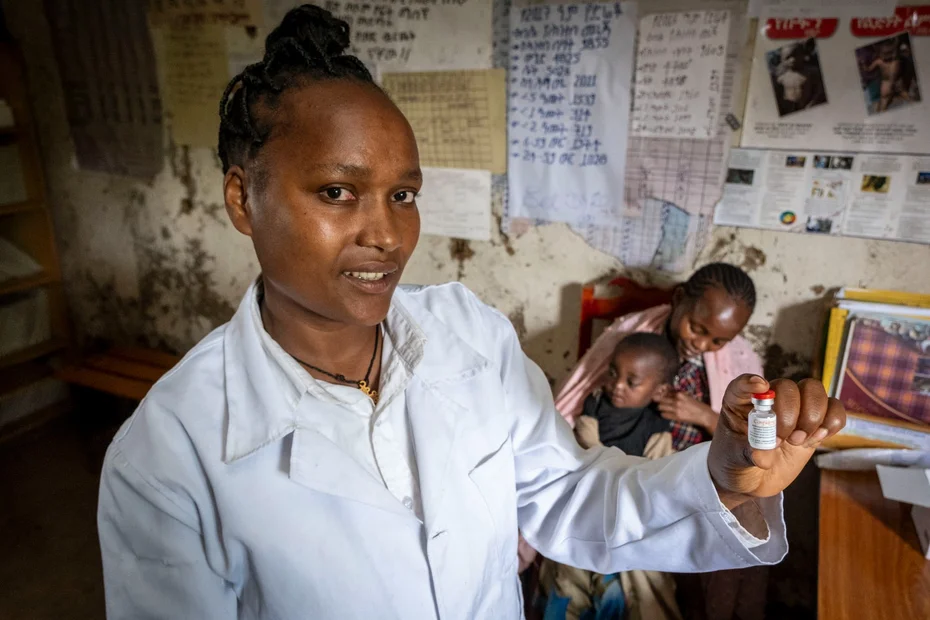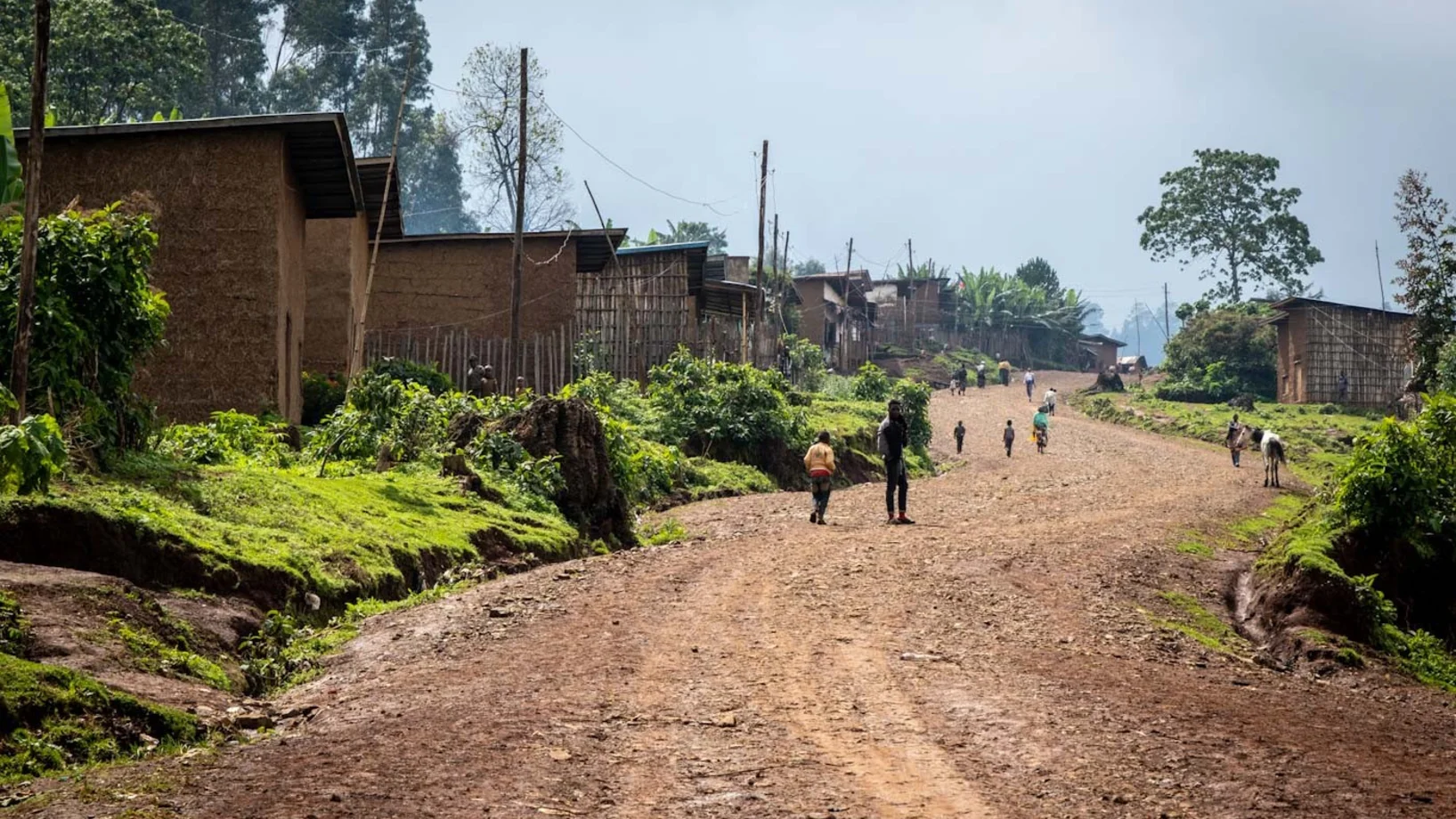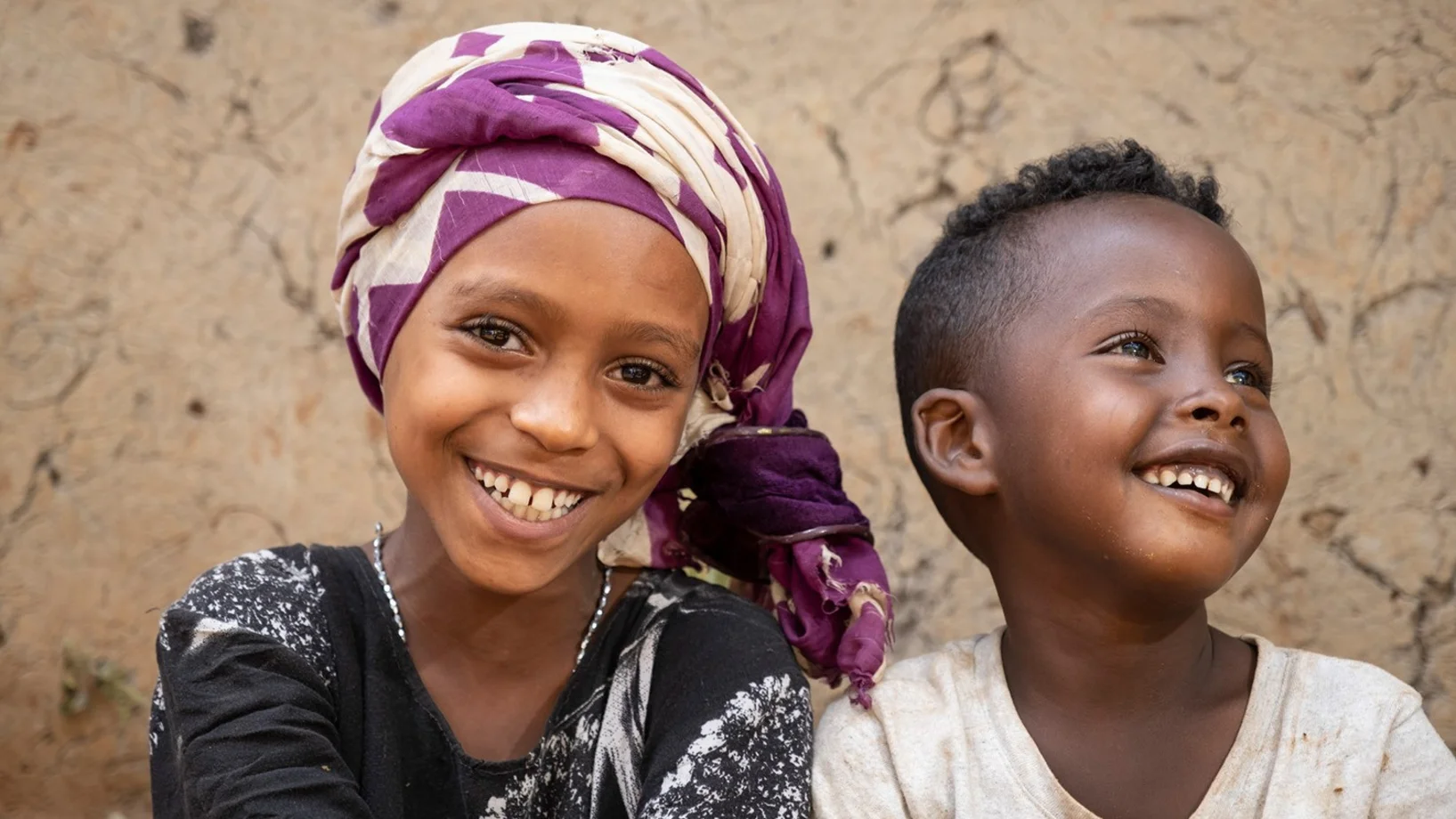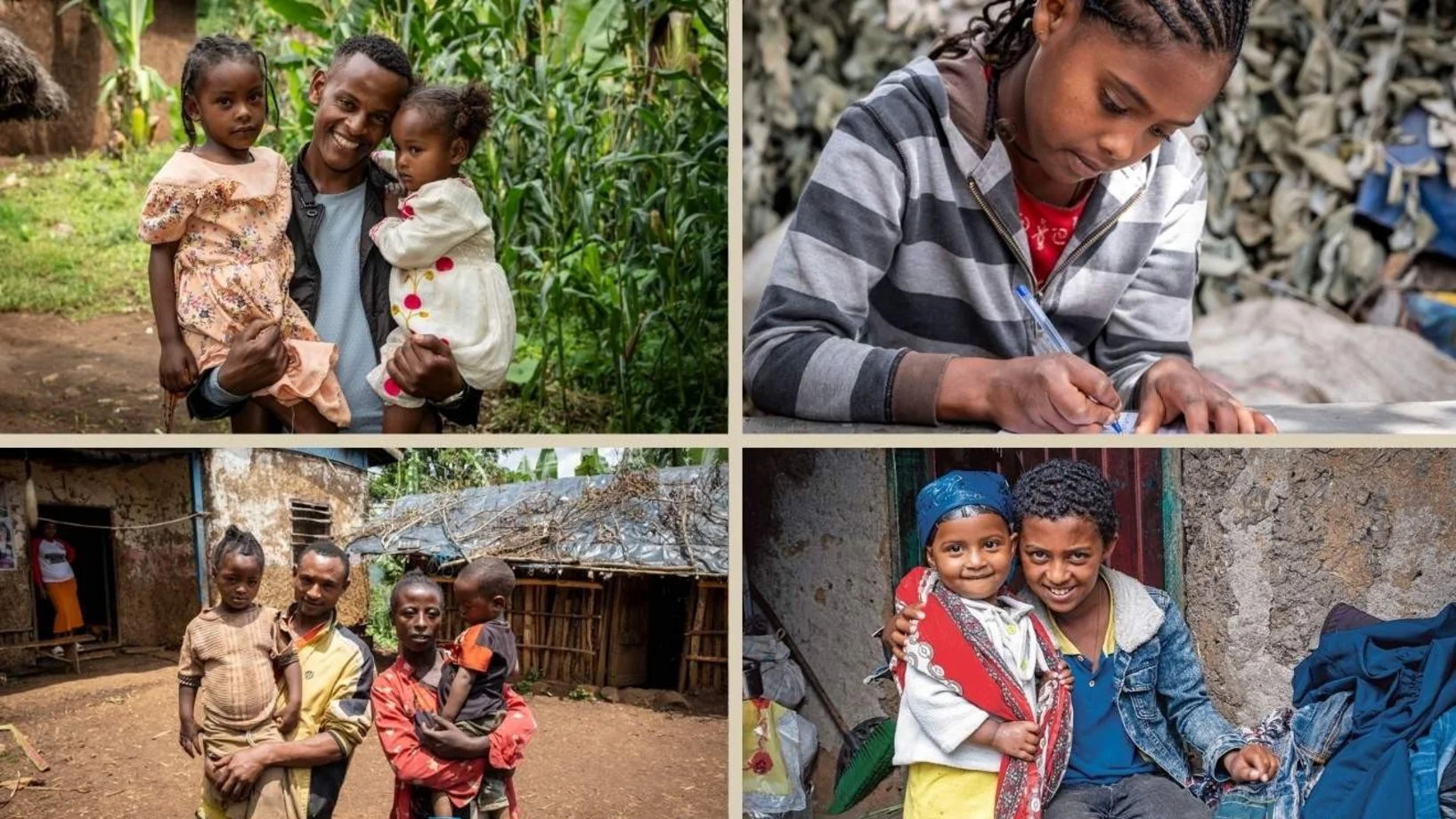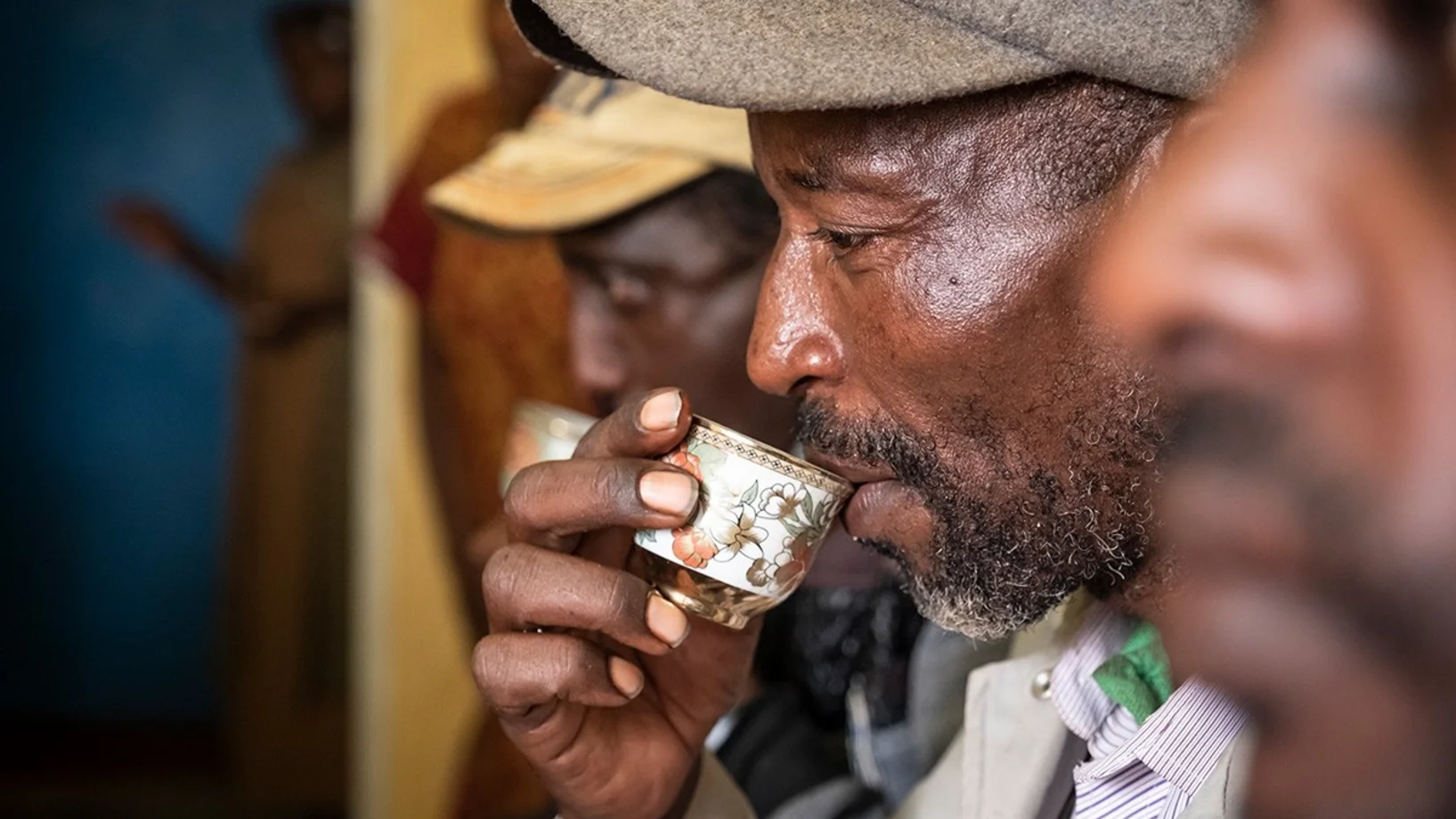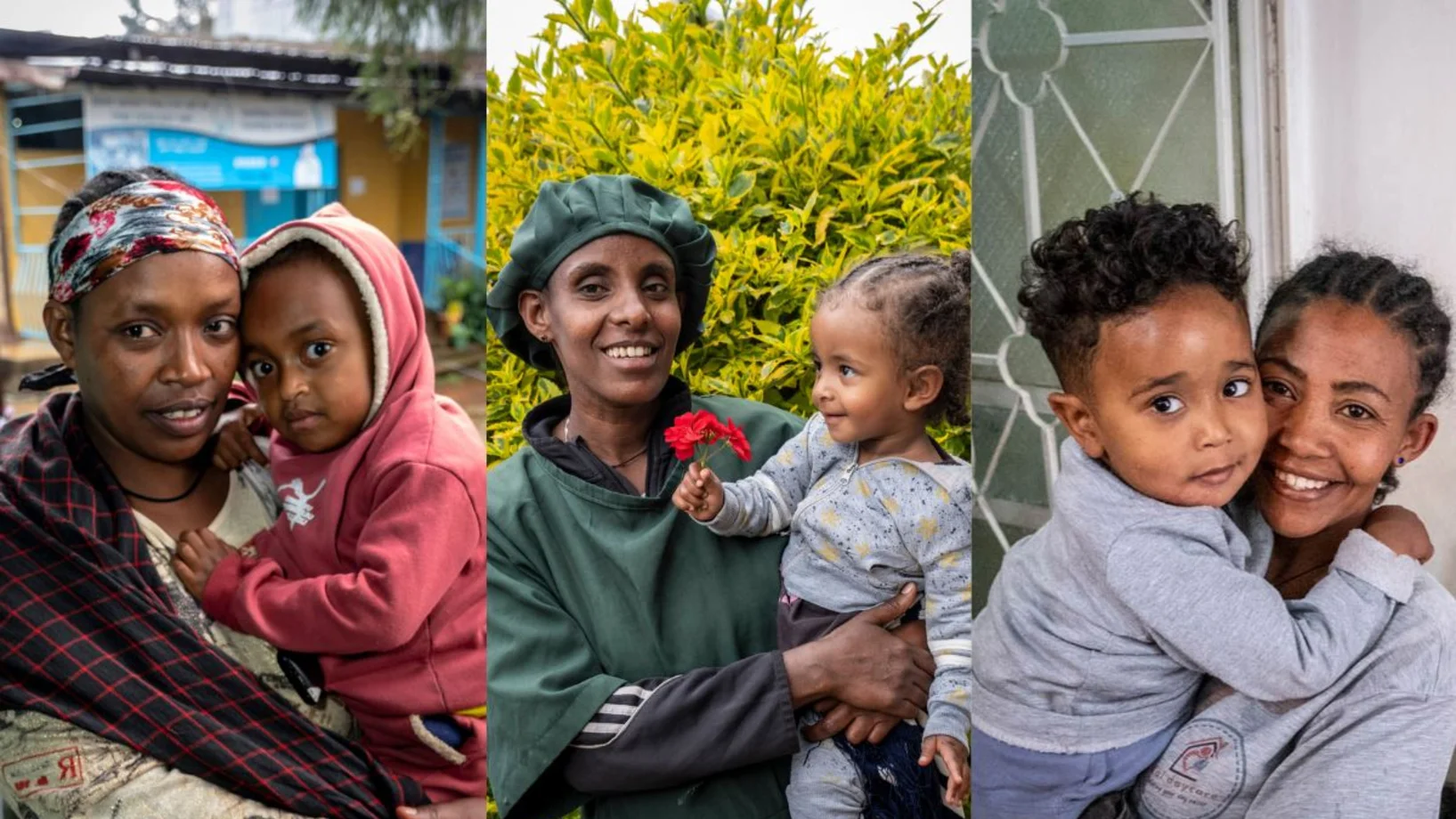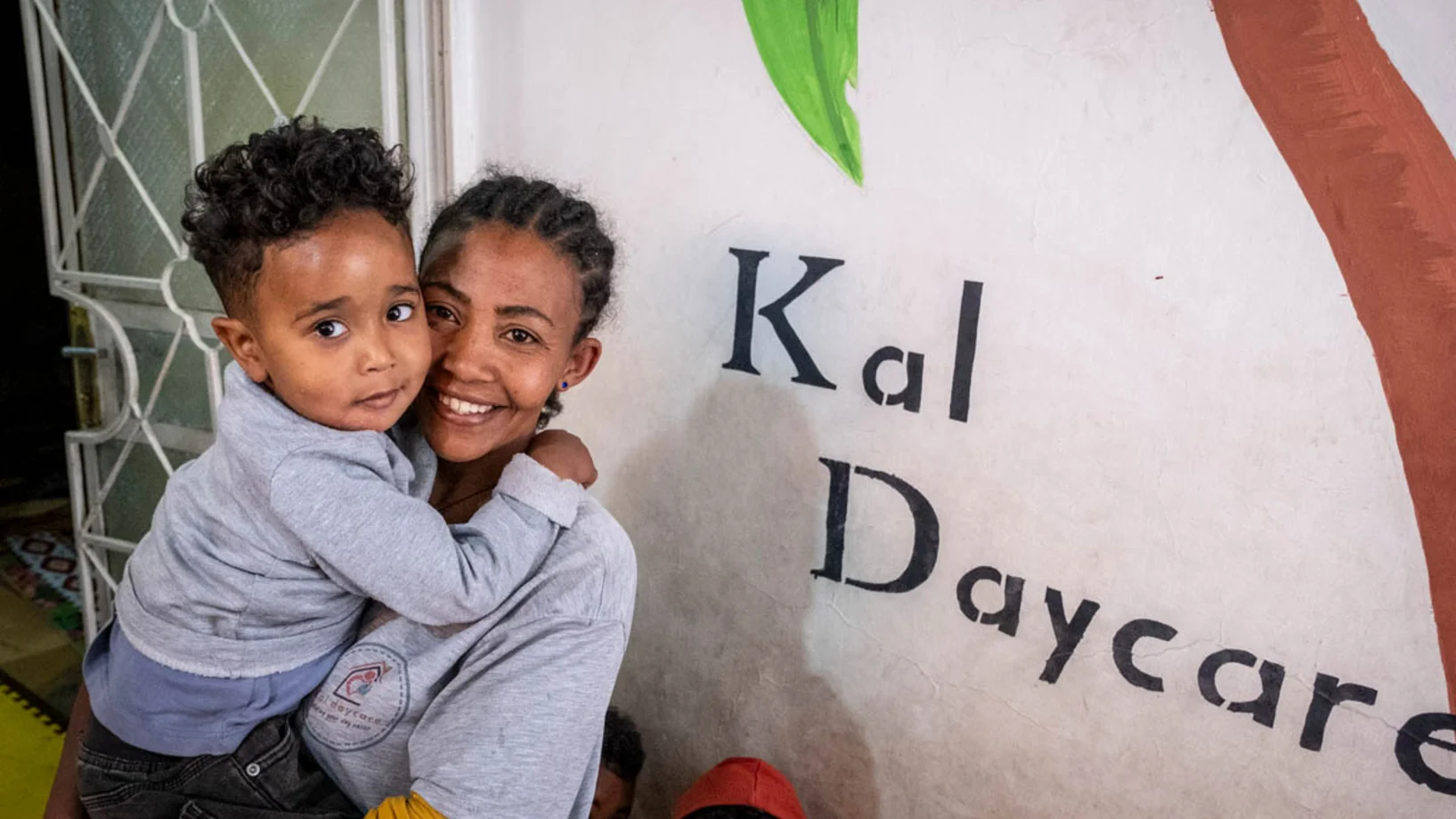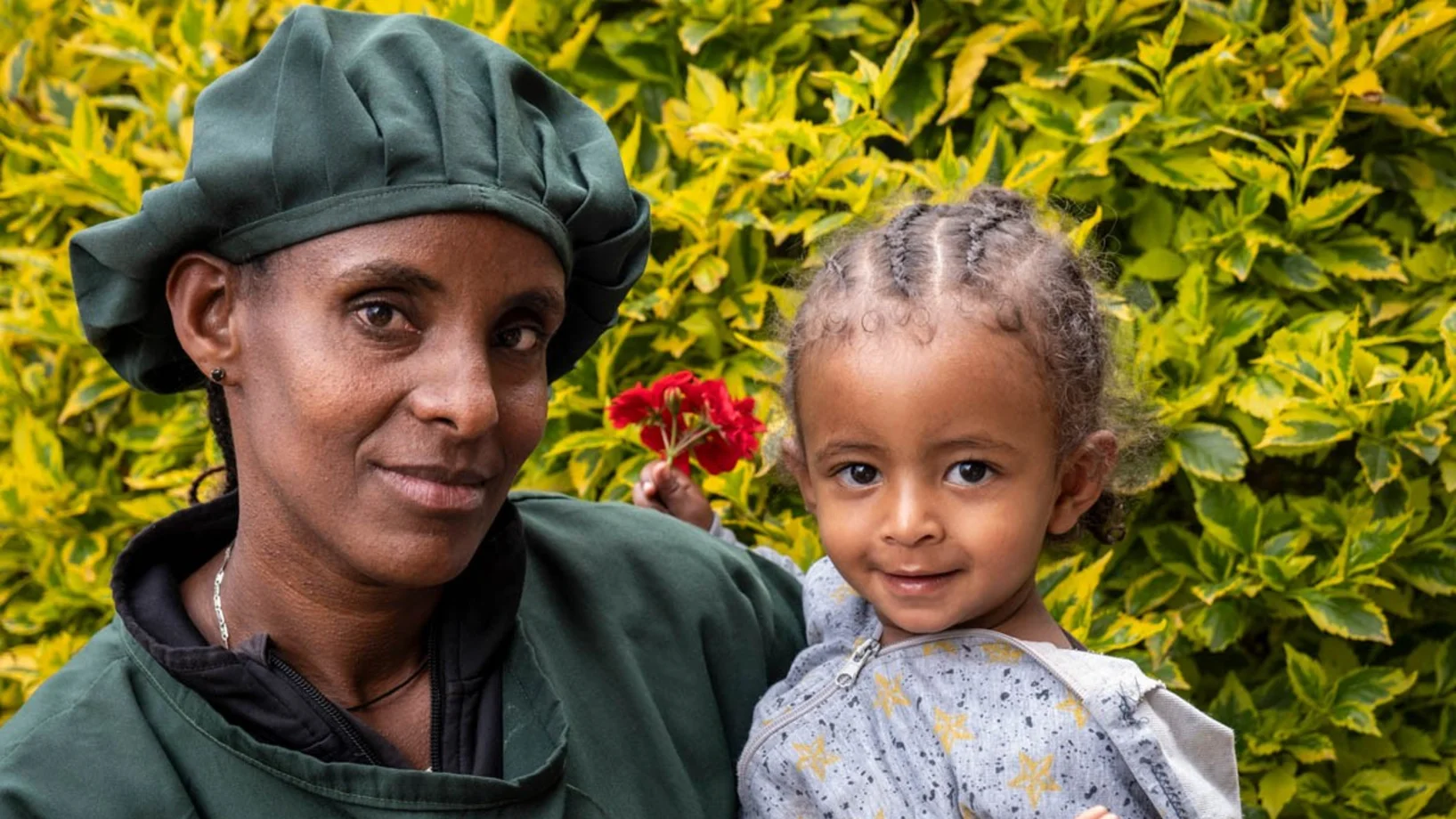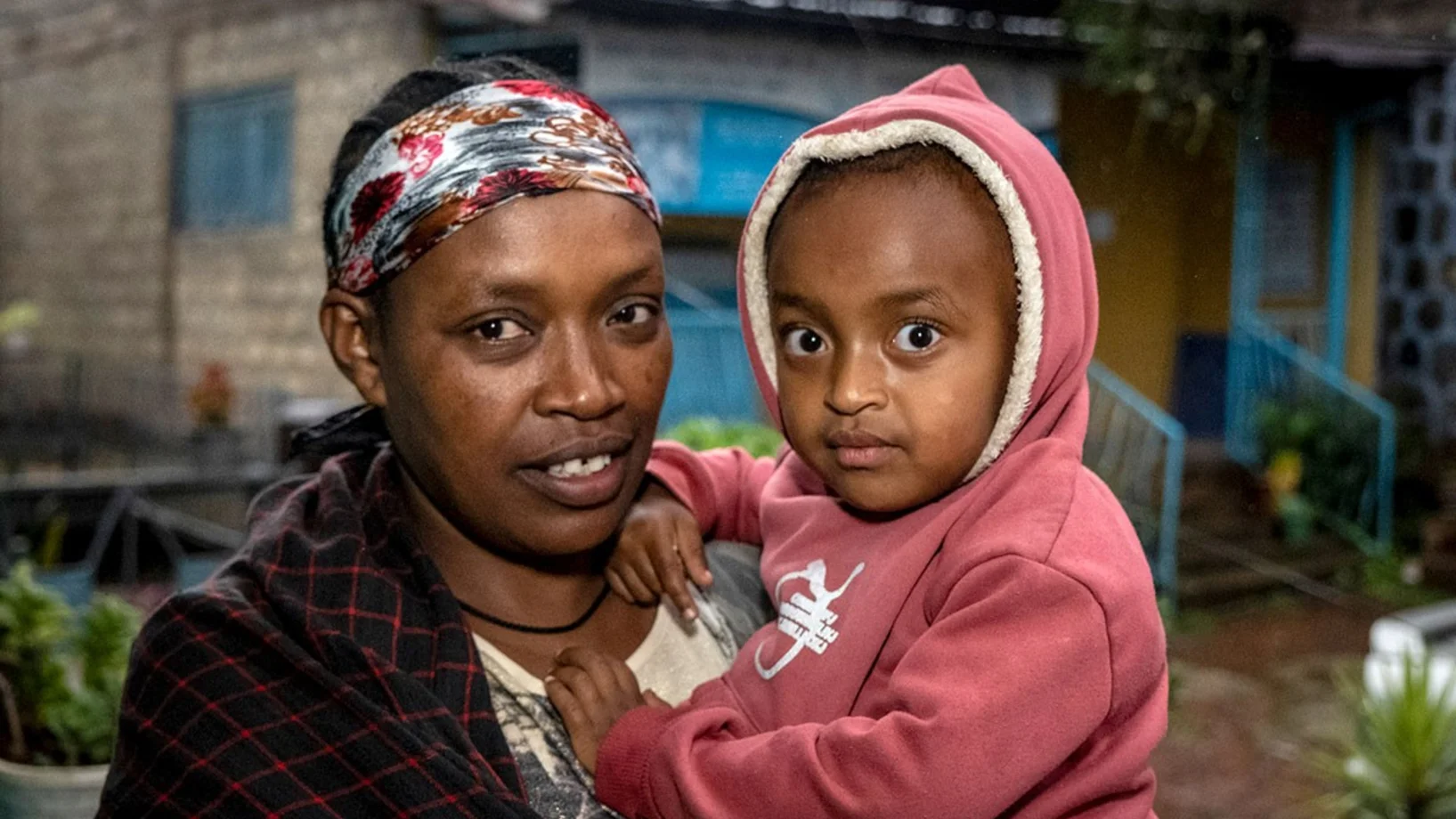The forest is their livelihood - and their pride: in southern Ethiopia, the Gedeo people have been cultivating the land in harmony with nature for centuries. But the lush landscape is deceptive. Growing population pressure is pushing the traditional system to its limits. In the Raphe district, hunger and hope go hand in hand and
the mountain landscape is bursting with greenery. Giant trees are scattered across the slopes, their dark canopy towering over the Ensete - giant shrubs reminiscent of banana plants. Their man-sized leaves also stretch towards the sun. The people make Kotcho, the bread of southern Ethiopia, from the starchy shrub
The famous forest coffee, known to connoisseurs as "Yirgacheffe" - the name of the nearest town - thrives in the shade of trees and shrubs. This is where forest farmers bring the black gold after laborious harvesting by hand, on the back of motorcycles, on donkeys and on human backs. Finally, under the coffee bushes on the ground, chard, beans, potatoes and cabbage grow: this forestry and agriculture in tiers, as practiced by the Gedeo people, is considered so unique that it has been declared a UNESCO World Heritage Site. The soil remains moist thanks to the dense canopy of leaves, erosion is prevented and the plants help each other. Without fertilizer or artificial irrigation, the families get amazing things out of small areas.
The Swiss of Ethiopia
"We are Gedeo," says farmer Tariku Kebede, 40. "The forest is our life." Everything that the traditional communities in this nation of around one and a half to two million people need grows in one place: In addition to duck duck and the vital coffee, the forest also provides firewood, building materials, fodder grasses and medicinal herbs for the livestock - a system that has been perfected over countless generations. Not unlike the traditional economic systems in the Alps, which is why some travelers refer to the Gedeo as the "Swiss of Ethiopia".
"We Gedeo are known throughout Ethiopia as a peace-loving community," says farmer Tariku. "In other areas, you'll find people with guns, spears or at least sticks at every turn. Not here with us." Disputes are not resolved with violence, but discussed among the elders. "Peace is our motto," says Tariku. This attitude characterizes everyday life. Anyone who needs help in the fields asks a neighbor - and gets support. People visit each other, drink coffee together, listen to each other: "We always want to work for peace. "
The Gedeo's work ethic is also impressive. The slopes are steep, everything is done by hand, plant by plant. "If you don't work hard here, you won't get far," says Tariku. "We don't have tractors. But we have perseverance."
The fertility of the land is deceptive
Despite this, the traditional system is reaching its limits. The population is growing rapidly. At 162 square kilometers, Raphe is as large as the canton of Appenzell Innerrhoden, but has six times as many inhabitants - around 98,000. The descendants divide the land of their fathers among themselves. With each generation, each family inherits a smaller and smaller piece of land. Three out of ten households have to make do with less than a quarter of a hectare - that's not even a third of a football pitch. Almost three quarters have less than half a hectare.
In Raphe, the lush landscape conceals a surprisingly bitter poverty. This was revealed by a baseline study conducted by Menschen für Menschen with 377 families on living conditions in the district. Nine out of ten families stated that they did not have enough to eat all year round. More than two thirds of the families had gone to bed without dinner at least once in the week prior to the survey.
One hundred percent interest - or more
One major hurdle is the lack of access to financial services. There are neither banks nor official credit facilities. Anyone who wants to invest - in fertilizer, seeds or simple tools - is dependent on private money lenders. However, their interest rates often amount to one hundred percent or more per year, so that investments are not worthwhile. As a result, agricultural yields stagnate and poverty increases.
Compounded by the high costs of diseases caused by contaminated water. Most people are dependent on open water sources such as streams or untrapped springs. These are often contaminated, which leads to severe diarrheal diseases, especially in children - with serious consequences for their development and health.
This ist also how elders and community representatives also describe the situation at a citizens' meeting when co-managers Claudio Capaul and Michael Kesselring explore the district. The air in the mud house is thick as a knife. The five dozen or so men sit close together on rough-hewn benches under a low ceiling. The few women in between can be counted on one hand. Elders report that there are no paved roads, only dust tracks that turn into muddy tracks in the rainy season and become impassable. That the children are taught in draughty school buildings without windows or proper furniture. They feel forgotten by the distant government. So far, there have been no international non-governmental organizations or aid agencies in the district.
Children arrive unplanned
Then a woman in the second row stands up. Her name is Shibre Tamirat, she is the mother of four children and appears self-confident. "Yes, we have a lot of problems in the community," she says. "But we all know how to work hard. We know that the new project by Menschen für Menschen is our chance. We want to work for it!"
Improving living conditions is urgently needed, especially for women, but particularly for expectant mothers: "Malnutrition often leads to complications." The nearest hospital is more than a day's walk away - a complication that is actually manageable can quickly become life-threatening for mother and child. There is not enough food because it has to be shared among too many people. "Our population is very large and is constantly growing," emphasizes Shibre Tamirat. "We need ways and means to curb further growth."
She is one of the few women in the district who has been to school for twelve years, which is probably why she speaks so naturally at the meeting. But most of the other women have also heard of family planning. But from knowledge to application is not a self-evident process, explains the speaker. This is mainly because although the state health facilities theoretically offer birth control pills and contraceptive injections, the preparations are often not available in practice. They don't find their way to Raphe because there are always gaps in the logistics of the health administration. "I was also unable to get contraceptives at times," says Shibre Tamirat. "Two of my four children were unplanned."
In order to ensure food security and livelihood prospects, Menschen für Menschen is now the first and only aid organization in Raphe to focus not only on agricultural support - with training, improved seeds and efficient livestock. "With our vehicles, we now ensure that contraceptives are always in stock at the health stations in the villages," emphasizes Co-Managing Director Claudio Capaul. In addition to the contraceptive pill, women mainly ask for three-month injections.
Shibre Tamirat, the eloquent woman from the citizens' assembly, is now being trained as a family and neighborhood advisor. In each village, Menschen für Menschen trains twelve so-called peer educators - both women and men. They receive in-depth knowledge on topics such as reproductive health, hygiene, nutrition, organic farming and the protection of natural resources. They pass on this knowledge in discussions, group meetings and home visits. "I will teach people and create awareness," says Shibre Tamirat. "Only education will improve the situation."
